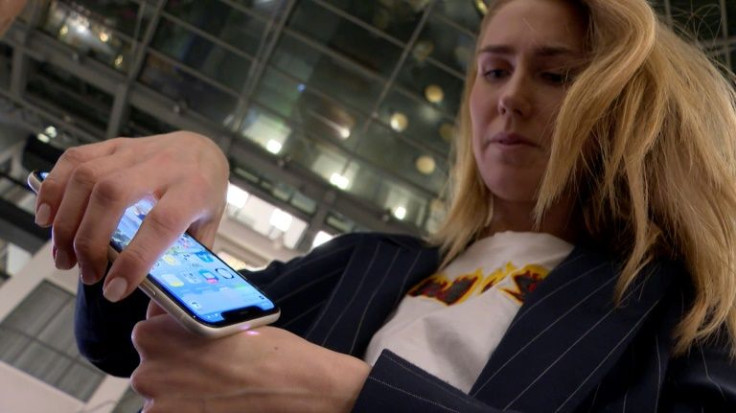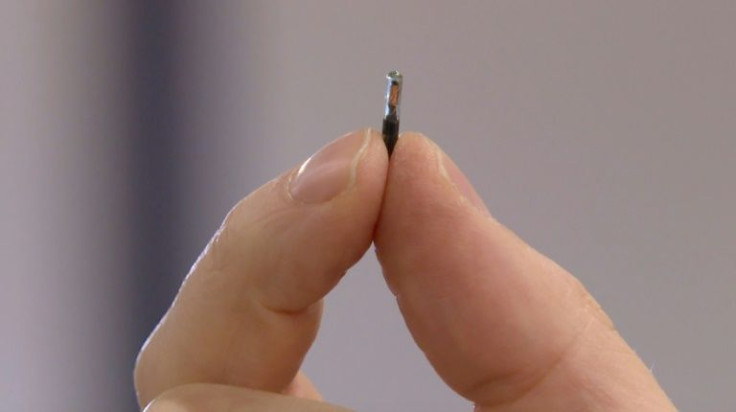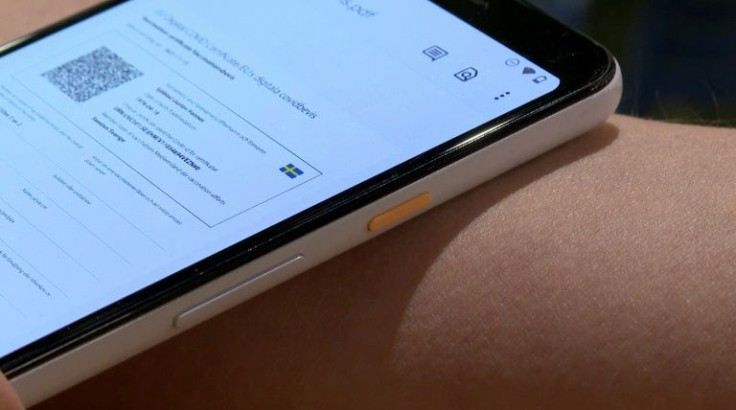Swedish Company Offers A Covid Pass That Gets Under The Skin
Dystopian nightmare or a simple convenience? A Swedish company implanting microchips under the skin has is promoting its devices for use as a Covid-19 health pass in a country with thousands of early adopters.

"I think it's very much part of my own integrity to have myself chipped and keep my personal data there with me, I actually feel that it's even more controlled on my end," Amanda Back, a Stockholm resident who has implanted the subcutaneous chip developed by DSruptive Subdermals, told AFP.
Though still rare, several thousand Swedes have opted to have an electronic implant inserted under the skin in recent years, eliminating the need to remember key fobs, business cards, public transport cards, and recently: vaccine passes.

The country that created the show "Real Humans" and its English language adaptation "Humans," is also a stronghold of so-called biohackers who are convinced that humans will become evermore entangled with technology in the future.

"I have a chip implant in my arm and I have programmed the chip so that I have my Covid passport on the chip and the reason is that I always want to have it accessible and when I read my chip, I just swipe my phone on the chip and then I unlock and it opens up," said Hannes Sjoblad, managing director of DSruptive Subdermals, as a PDF with his vaccine certificate appeared on his phone.
"A chip implant costs a hundred euros if you want to buy the more advanced versions, and you can compare this with for example a health wearable that will cost perhaps twice that but at the same time a chip implant you can use for twenty, thirty, forty years. Whereas a wearable you can only use for three, four years," he added.
For Sjoblad, the Covid pass is just one example of a possible application, which will be a "thing for the winter of 2021-2022".
The Swedish entrepreneur added he has a "strong interest in privacy."
While he acknowledged that many "people see chip implants as a scary technology, as a surveillance technology", Sjoblad said that instead they should be viewed as a simple ID tag.
"They don't have a battery, they cannot transmit the signal by themselves, so they're basically asleep, they can never tell your location, they are only activated when you touch them with your smartphone," he said.
All implants are voluntary, and if someone were to make them compulsory for prisoners or elderly people in retirement homes, "you will find me on the barricades," Sjoblad said.
"Nobody can force anyone to get a chip implant."
© Copyright AFP {{Year}}. All rights reserved.





















